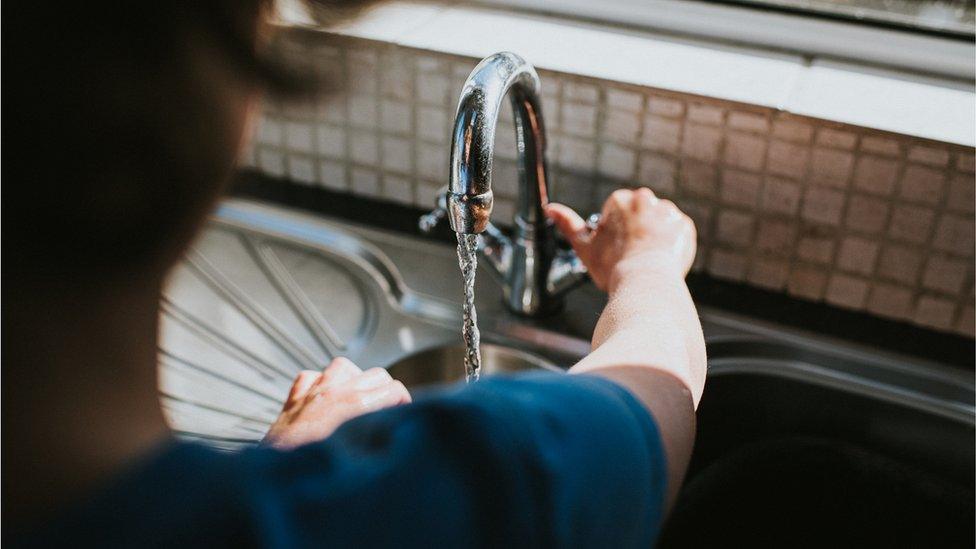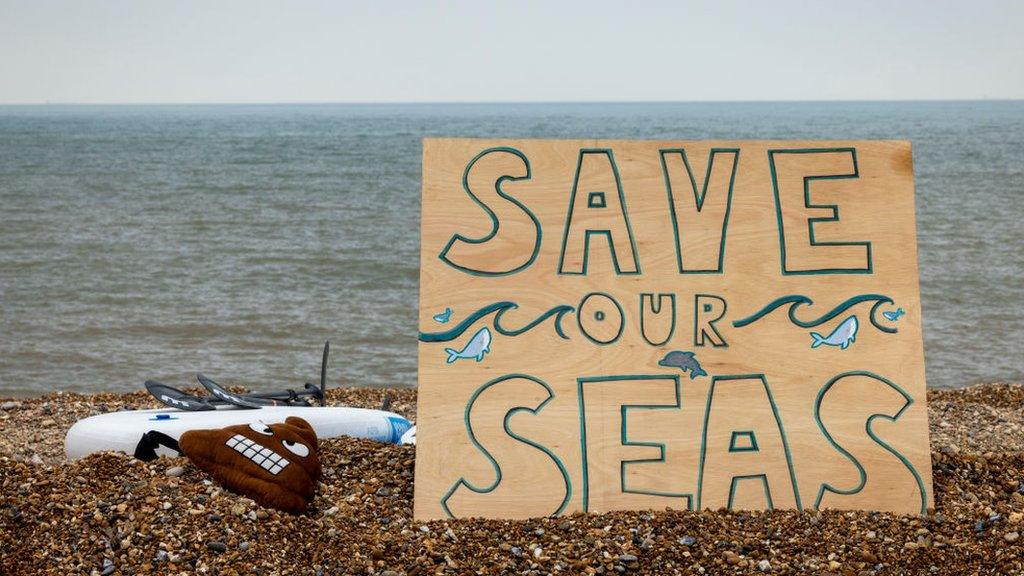Water bills to increase by most in almost 20 years from April
- Published
- comments

Water bills are set to get the biggest increase in almost 20 years from April.
The annual bill for an average household in England and Wales will hit £448, industry body Water UK has said.
The 7.5% increase means customers will pay on average £31 more than last year.
Consumer groups said the rise would squeeze struggling households when one in five are already finding it difficult to pay. But Water UK says the rise for most customers will be below inflation.
This measure of the rate of overall price rises in the UK was 10.5% in December.
Water UK also argued that the bills remained lower in real terms than they were a decade ago.
It added that the increase reflected higher energy costs, with water firms using about 2% of the UK's electricity.
Last year water firms were found to be regularly dumping illegal sewage into rivers in England and Wales.
Sewage was discharged into rivers 400,000 times in 2020. The Liberal Democrats accused water companies of prioritising profits over protecting the environment, external.
Water UK said on Thursday that firms had already been investing in infrastructure, and would invest a further £70bn to "eliminate harm" from storm overflows and increase water supplies by building new reservoirs and national water transfer schemes.
It said that since the water industry was privatised, more than £190bn has been invested in improving services.
It added that water companies "are acutely aware of the impact of price rises on lower income and vulnerable customers".
"Companies have recently increased the level of support they offer by more than £200m, which will help hundreds of thousands more households," it said.
More than one million households already get help with water bills, and that will increase to 1.2 million, it said.
Water UK's director of policy Stuart Colville said the average increase to bills worked out at about 60p a week.
"However, we know that any increase is unwelcome, particularly at the moment," he said.
"Anyone with worries should contact their water company or go to supportontap.org for advice, and it's worth remembering that water companies will never cut anyone off, or make them use a prepayment meter."
'More uncertainty'
But watchdog the Consumer Council for Water (CCW) said that many customers who cannot afford their bill "slip through the net" due to a "postcode lottery" of regional variations in billing.
Some households could face rises significantly above the average, while other increases could be below, it said.
CCW chief executive Emma Clancy said: "Water is essential for all of us so no-one should be worried about being able to afford their bill."
She said the bill increases "will bring more uncertainty to struggling households at a time when they can't be certain they will get the help they need".
"We urgently need a new water affordability scheme that provides consistent support based on people's needs."
Access to social tariff
Water poverty campaigner Jess Cook at National Energy Action (NEA), said social tariffs are "essential for low-income households".
"Discounted water bills for those struggling to pay can stop the most vulnerable from cutting back or running up debt when they can ill afford to do so," she said.
"But the current postcode lottery means where you live affects what you pay and what support you receive."
She added that access to a social tariff "should be made fairer, more consistent, and accessible to everyone who needs it, regardless of where they live."

